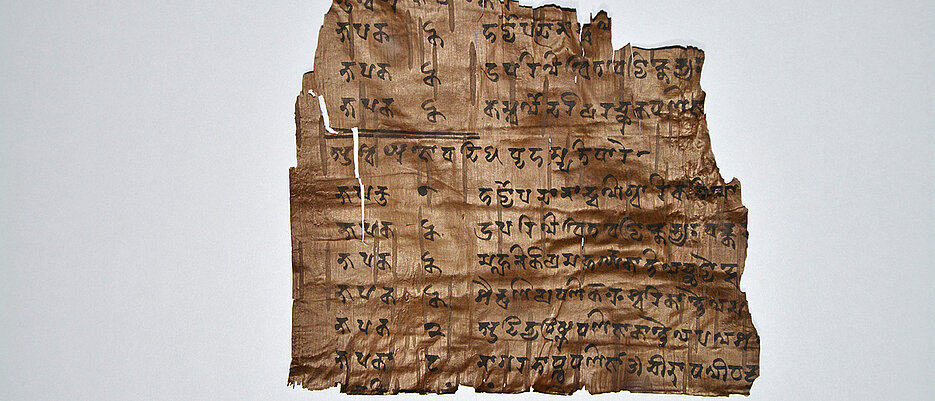The Proto-Śāradā Project: Towards the edition of a new collection of administrative letters and documents from pre-modern South Asia
The core of the project is formed by a study of a collection of birch-bark manuscripts and bullae presently kept in the Jehan Zaib Collection (JZC), a private collection in Leeds, United Kingdom. After some inquiry it became clear that this new collection represents a hitherto unknown type of manuscripts – apparently administrative letters and ledgers. The written artefacts are accompanied by a considerable number of clay bullae which were once attached to the documents. It is assumed that these objects once belonged to an archive.
The unique character of this material and its complicated historical context in a rather poorly understood period of pre-modern Indian history require a more comprehensive approach than just an edition. According to our preliminary research, the objects of the collection originate from the Indian North-West, most probably from the region of Punjab. All documents and bullae are inscribed in the so-called Proto-Śāradā script, a formal variety of later Brāhmī that was in use between the 6th and 10th c. CE in a rather large area reaching from Bihar in the east to “Greater Gandhāra” in the west (present-day north-western Pakistan and eastern Afghanistan). Its paleography – and in particular its relation to the preceding and subsequent script types (Eastern Gupta Brāhmī/Śāradā) – is still a matter of dispute and requires a new and systematic approach that is based on a more comprehensive evaluation of the characteristics of written culture in the Indian North-West, including the Punjab area. The introduction of this new script is accompanied by the emergence of new political agents, known under the generic term Shahi, among them the Palola Shahis from Gilgit, the so-called Early (or Turk or Kabul) Shahis and the Late (or Hindu) Shahis. The period under consideration marks an important transitional phase in South Asian history: the transition from a predominantly Buddhist to a Hindu society, immediately before the Muslim invasions in North-West India.
In order to better understand the historical and cultural context of the new documents, we intentionally will not limit the scope of our research to a philological study of the texts. Instead, the project aims at a comprehensive evaluation of this cultural complex that is characterized by the use of the Proto-Śāradā script in manuscripts and inscriptions.



